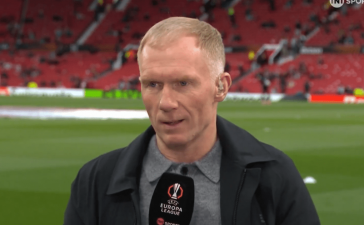British households struggling with the cost of living crisis will draw some comfort this winter from the fact government subsidies are taking some of the edge off eye-watering energy bills.
But large energy suppliers and fuel poverty campaigners are urging ministers to engage in an “open and frank” conversation about how to tackle high energy costs in future years, particularly for the most vulnerable, as analysts caution that wholesale gas prices may not return to “normality” before 2030.
“It’s unsustainable for the government to be subsidising every household’s energy for a long, long time,” said Carl Packman, head of corporate engagement at the campaign group Fair By Design.
Companies including Eon and EDF Energy have joined fuel poverty campaigners in calling for the government to accelerate consultations over the introduction of a “social tariff”, or another kind of discounted rate that would provide more help to the poorest households.
They are also urging wider market reforms — including overhauling a system where the cost of gas in effect sets the electricity price, irrespective if it is generated by cheap, green sources, such as wind — as high energy bills threaten to put a strain on household budgets for several more years. They also want a greater government focus on making Britain’s housing stock more energy efficient.
“We are calling for the government to have these kinds of discussions,” said Philippe Commaret, managing director for customers at EDF Energy, one of the top six energy suppliers in Britain, adding that an “open and frank” conversation would be required between the energy industry, regulator, ministers and charities to determine which households should continue to receive help from the taxpayer.
Until the end of March, the government’s so-called energy price guarantee (EPG) scheme caps the price per unit of electricity and gas for all households so that a “typical” household pays about £2,500 a year on average. Without that subsidy, the figure would have been nearly £4,300 a year from January 1, as dictated by the energy price cap that is set by Ofgem, Britain’s energy regulator, every three months.
Ministers have already said subsidies would continue after April for a further 12 months at a reduced level, so a typical household bill would be limited to £3,000 a year should Ofgem’s price cap, which is dictated by prices in the wholesale energy markets, remain above that level.
Energy consultancy Cornwall Insight warned last month that gas prices were “unlikely to return to pre-2021 ‘normality’ this decade”. And although there are signs of some relief — analysts this week revised their forecasts for October’s price cap down to between £2,700 to £2,800 reflecting a fall in wholesale prices in recent months — many households are still likely to struggle to pay their energy bills over the next few winters at those inflated levels.

The government has already warned it could not subsidise energy bills for all households “indefinitely”, which adds to the urgency of wider reforms, according to Packman. He said with energy prices forecast to remain high for years to come there had “to be a more sustainable option and a social tariff which would target . . . those at the sharpest end of the cost of living crisis”.
The Treasury said it was working with consumer groups and the energy industry on a number of options to best protect consumers beyond April 2024, including social tariffs. “No decisions have been made at this stage,” it added.
Devising a more targeted scheme is challenging. There are unresolved questions for the government over the funding of a social tariff — neither option of using general taxation or adding a levy to all other domestic bills are palatable in the current climate — and which households should benefit.
But there are examples both abroad and in other industries that could act as a guide, said Simon Virley, head of energy and natural resources at KPMG. “There is no reason why a social tariff can’t be applied to the [British] energy market, as we already see them used in other sectors, such as broadband, as well as other countries, like Belgium.”
Commaret said a more “targeted” EPG “could be a way to have a kind of social tariff”.
But Michael Lewis, chief executive of Eon, believes a more urgent intervention may be needed, given millions of households are likely to struggle next winter even if forecasts for bills are coming down.
Eon is pushing for the existing support scheme to be replaced next winter by an alternative mechanism known as a “rising block tariff”, which subsidises consumption up to a certain level. This would offer smaller households, which should cover the most vulnerable, much cheaper bills, while the more affluent living in larger properties would have to shoulder more of the costs.
“Broadly speaking there is a correlation with energy consumption and wealth so you can subsidise the first block of average consumption at a very reduced rate, the second block might increase but it’s still subsidised but beyond that it’s not subsidised at all,” explained Lewis.
“It means everyone can get the basic energy at a cheap level, it also encourages people to economise . . . It’s a fairer way of distributing the cost of [government support].”
Ultimately, though, “putting continuous support on bills is a little bit of a plaster”, said Mari Martiskainen, professor of energy and society at the University of Sussex Business School, who called on the government to tackle the problem of Britain’s inefficient housing stock, which is among the worst in Europe.
The government has committed to providing £6bn in funding for three years but not until 2025 as part of a “new long-term commitment to drive improvements in energy efficiency to bring down bills for households, businesses and the public sector”. For many this is far too late.
“Imagine if we could provide people with a really warm home to begin with, how much that would impact their quality of life and then have wider long-term implications,” said Martiskainen.
“We’re talking about things like the NHS . . . if people had fewer illnesses [caused by living in cold homes] we can be using NHS services less.”











